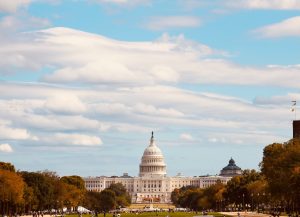House Passes Federal Marijuana Legalization Bill
The U.S. House of Representatives has passed a federal bill that would decriminalize marijuana at the federal level. It’s a sweeping measure that expressly strives to address racial inequality of drug law enforcement, though the impact could be much broader – that is, if it had a realistic shot at passing in the Senate. Our Los Angeles marijuana lawyers and most Washington insiders agree the bill is likely to falter in the Senate. 
The Marijuana Opportunity Reinvestment and Expungement Act (or MORE Act) would remove cannabis from the list of U.S. controlled substances. It would also expunge lower-level federal marijuana arrests and convictions and provide incentives for minority-owned cannabis businesses in a market that has been expanding rapidly in recent years – not just in California, but throughout the country. Additionally, it would establish an excise tax on marijuana sales, allowing that money to be funneled into areas that were particularly hard-hit by the failed war on drugs.
The measure was largely approved along party lines, though five Republican representatives and one independent joined Democrats in passing the bill. Half a dozen Democrats voted against it. NPR quoted the bill’s sponsor as saying federal action on the issue is an imperative, given that the majority of states plus Washington, D.C. have recognized medical cannabis as legal and 15 allow its sale and possession for adult recreational use. Those who voted in favor of the bill say it is long overdue, particularly as so many of the arrest and sentencing laws have placed an unfair burden on minority and low-income communities. Research conducted by the ACLU has established that people of color are four times more likely to be arrested for possession of marijuana than their White counterparts, despite evidence these groups use the substance in equal measure. Federal estimates are that some 22 million Americans regularly use marijuana. Continue reading
 Cannabis Law Group's Medical Marijuana Legal Blog
Cannabis Law Group's Medical Marijuana Legal Blog









 Californian officials are stepping into an escalating court battle surrounding cannabis home deliveries. The move comes as the state’s counties and cities are at odds with companies delivering cannabis to customers’ homes, within communities that have either banned or restricted marijuana sales.
Californian officials are stepping into an escalating court battle surrounding cannabis home deliveries. The move comes as the state’s counties and cities are at odds with companies delivering cannabis to customers’ homes, within communities that have either banned or restricted marijuana sales.

 The interest of companies adjacent to the cannabis industry especially is expected to soar – everything from packaging and advertising to purveyors of point-of-sale technology that allows marijuana producers to keep accurate track of their products from seed-to-sale.
The interest of companies adjacent to the cannabis industry especially is expected to soar – everything from packaging and advertising to purveyors of point-of-sale technology that allows marijuana producers to keep accurate track of their products from seed-to-sale.